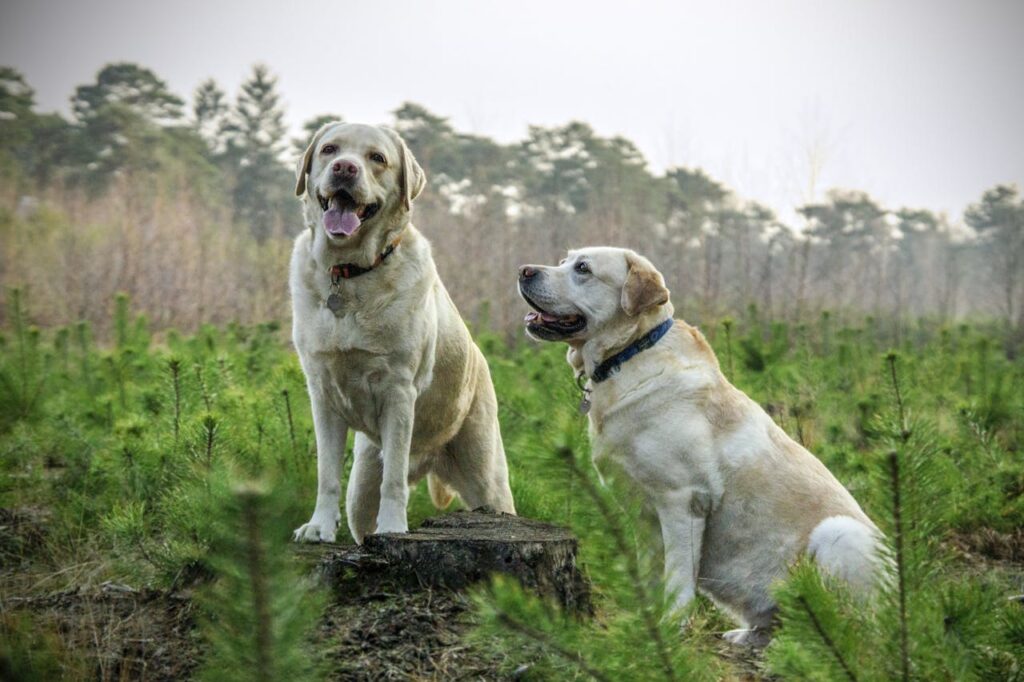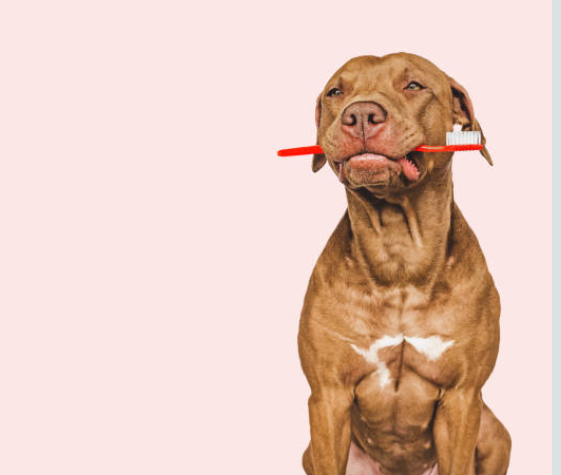As dogs age, maintaining a healthy weight becomes more challenging. If your senior dog is underweight, it’s crucial to address the issue promptly, as weight loss can lead to a decline in overall health.
Knowing how to help an old dog gain weight can make a significant difference in their quality of life, energy levels, and longevity.
Older dogs may struggle to keep weight on for various reasons, including a slower metabolism, dental issues, or underlying health conditions.
Helping them regain or maintain a healthy weight involves more than just adding extra food, it requires a tailored approach that supports their changing nutritional needs.
In this article, we’ll explore practical tips and strategies for ensuring your senior dog stays strong, happy, and well-nourished.

Causes of Weight Loss in Older Dogs
Before figuring out how to help an old dog gain weight, it’s important to understand why your senior dog may be losing weight.
As dogs age, their metabolism slows down, making it harder to maintain a healthy weight. Dental issues, like missing teeth or gum disease, can also reduce their ability to chew food, leading to lower calorie intake.
Chronic health conditions such as kidney disease, thyroid imbalances, or diabetes can cause weight loss too.
Moreover, aging dogs often lose muscle mass, which can make them look thinner even if they’re eating enough.
Addressing these underlying causes is key to successfully helping your dog regain weight. A vet check-up is the first step to identify and treat any health problems.
Visit the Veterinarian: The First Step
If you’re wondering how to help an old dog gain weight, the first thing you should do is visit the vet. A thorough check-up will help identify any health problems that may be causing weight loss.
Your vet may run blood tests, perform physical exams, or even recommend imaging to check for conditions like kidney disease, thyroid issues, or diabetes.
Once any underlying health issues are addressed, your vet can suggest the best diet and care plan to help your dog gain weight safely. Regular vet visits will also ensure your dog’s progress is on track.
Improve Diet: Nutrient-Dense Food
When learning how to help an old dog gain weight, diet is crucial. Choose high-quality, calorie-dense food designed for senior dogs.
These formulas typically contain more protein and healthy fats, which are essential for muscle maintenance and energy.
Wet food can be a great option, especially if your dog has trouble chewing dry kibble. It’s easier on the teeth and more appetizing for dogs with reduced appetite.
Consider feeding smaller, more frequent meals throughout the day to stimulate your dog’s appetite and improve digestion.
Adding tasty food toppers, like bone broth or fish oil, can also make meals more enticing and nutrient-rich.
Care of Dental Health
If you’re wondering how to help an old dog gain weight, don’t overlook dental health. Many older dogs have dental issues that make eating difficult or painful. This can lead to reduced food intake and weight loss.
Make sure to regularly check your dog’s teeth and gums. If they have dental problems, consult your vet about treatment options, including professional cleanings or tooth extractions.
You can also offer softer, chew-friendly foods that are easier to eat. Dental chews and toys can help improve oral health, making mealtime more comfortable and encouraging your dog to eat more.

Enhancing Appetite and Stimulating Interest in Food
To learn how to help an old dog gain weight, boosting their appetite is key. Many senior dogs eat less due to changes in taste, smell, or simply a lower appetite.
Try offering a variety of foods to keep mealtime interesting. Some dogs respond well to different flavors or textures. Warming up their food can also enhance the smell and make it more appealing.
Create a feeding routine, offering meals at the same times each day. This can help your dog develop a consistent eating pattern.
You can also use puzzle feeders or interactive bowls to make mealtime more engaging and encourage them to eat more.
Supplementation and Nutritional Support
When figuring out how to help an old dog gain weight, adding supplements can make a big difference. Healthy fats, like fish oil or coconut oil, are calorie-dense and can boost your dog’s weight gain.
Consider weight-gain supplements specifically designed for dogs. These are rich in calories and essential nutrients. Talk to your vet before adding any new supplements to ensure they’re safe and effective.
Probiotics and digestive enzymes can also support digestion, helping your dog absorb more nutrients from their food. This can improve overall nutrition and support healthy weight gain.
Exercise and Mental Stimulation
When asking how to help an old dog gain weight, it’s important to include light exercise. Regular, low-impact activity helps stimulate appetite and maintain muscle mass. Short walks or gentle play sessions are great options for senior dogs.
Mental stimulation also plays a role. Engaging your dog with toys, training, or puzzle games can increase their overall well-being and make them more likely to eat.
Just be careful not to overdo it. Too much activity can cause fatigue, which may reduce appetite. Balance is key to helping your dog stay healthy while gaining weight.
Monitor Weight and Health Progress
To ensure you’re effectively helping your dog, it’s important to monitor their weight and health. Weigh your dog regularly to track progress and make sure they’re gaining weight at a healthy rate.
If you notice no change or further weight loss, consult your vet. Regular check-ups allow your vet to adjust your dog’s diet or treatment plan as needed.
Watch for signs of discomfort or changes in behavior that could signal underlying health issues. By staying vigilant, you can ensure your dog is on the right path to regaining a healthy weight.
Conclusion
In final step, learning how to help an old dog gain weight involves a combination of diet, health care, and lifestyle changes.
Start by visiting your vet to rule out underlying health issues. Then, focus on providing high-quality, calorie-dense food, and address any dental problems that may affect eating.
Stimulate your dog’s appetite with variety, supplements, and mental enrichment. Light exercise and regular monitoring will help track progress and ensure your dog’s well-being.
With patience and the right approach, you can help your senior dog regain weight and enjoy a healthier, more comfortable life.
We hope this guide on how to help an old dog gain weight has been helpful! Every dog is unique, and it’s important to tailor your approach based on their specific needs.
Have you tried any of these tips with your own senior dog? Or perhaps you have additional advice or experiences to share?
We’d love to hear your thoughts! Please leave a comment below and let us know how you’re supporting your aging pet. Your feedback helps other pet owners, too!
related Posts:
Is melatonin toxic to dogs
Can puppy eat pizza crust
FAQs
1. What is the best food to help my senior dog gain weight?
Choose high-calorie, nutrient-dense food designed for senior dogs. Look for formulas rich in protein and healthy fats to support muscle mass and overall health.
2. How can I stimulate my old dog’s appetite to gain weight?
Try offering a variety of foods or warming their meals to enhance the aroma. Interactive feeding bowls or puzzle feeders can also make mealtime more engaging.
3. Can dental problems prevent my dog from gaining weight?
Yes, dental issues can make chewing difficult, leading to reduced food intake. Regular dental care and softer foods can help improve your dog’s ability to eat.
4. Should I feed my senior dog multiple small meals a day?
Yes, feeding smaller, more frequent meals can stimulate appetite and make digestion easier for older dogs. This helps them gain weight gradually and comfortably.
5. Are there weight-gain supplements for senior dogs?
Yes, there are specialized weight-gain supplements designed for senior dogs. Consult your vet to choose the right supplement that meets your dog’s nutritional needs.
6. Can I add oils to my dog’s food to help with weight gain?
Yes, adding healthy oils like fish oil or coconut oil can increase calorie intake and provide essential fats. Always check with your vet before introducing new oils to their diet.
7. How much exercise does my senior dog need to gain weight?
Light, low-impact exercise like short walks or gentle play is beneficial. Exercise helps stimulate appetite and maintain muscle mass without overexerting your dog.
8. How can I tell if my old dog is underweight?
Check for visible ribs, a noticeable waistline, and a lack of muscle mass. If you notice these signs, consult your vet to discuss a plan to help your dog gain weight.
9. Can stress cause weight loss in older dogs?
Yes, stress can lead to decreased appetite and weight loss. Providing a calm, stable environment and minimizing stressors can help your dog eat more and gain weight.
10. How often should I take my senior dog to the vet while trying to gain weight?
Regular vet visits are important to track weight progress and adjust diet plans. Generally, a check-up every 3 to 6 months is recommended for aging dogs.

